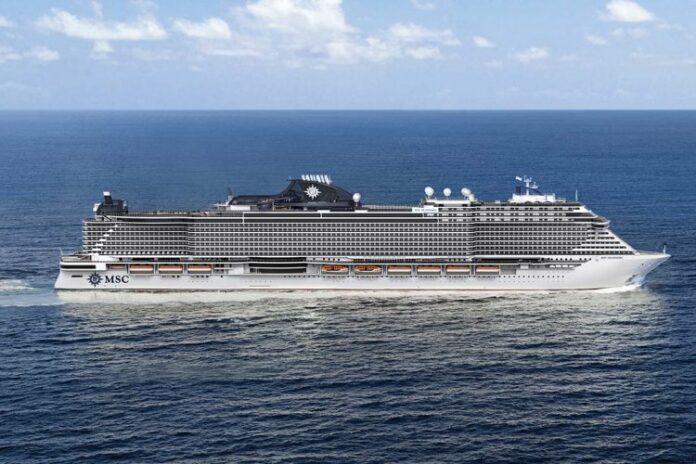MSC Cruises will be the first cruise line in the world to install a new and advanced innovative technology sanitation system called ‘Safe Air’ to improve further the quality and cleanliness of the onboard air for its guests and crew.
‘Safe Air’ will be fitted on MSC Seashore, one of the largest and most technologically advanced ships ever built in Italy and currently under construction at shipbuilder Fincantieri’s Monfalcone yard and set to be delivered in July 2021 and be the first of two ‘Seaside Evo’ Class ships.
The ‘Safe Air’ next-generation sanitation system is based on the technology of UV-C lamps which are type C ultraviolet rays applied in combination with the ship’s air conditioning system, whereby air flow is radiated at source with a short wavelength light that hits organic particles and prevents the circulation of air pollutants such as viruses, bacteria and mold.
The ‘Safe Air’ sanitation system was developed by Fincantieri’s designers and technicians and the virology laboratory of the International Center for Genetic Engineering and Biotechnology, a leading global research institute headquartered in Trieste, Italy.
The Institute provides businesses with scientific support to develop innovative technological solutions for the control of virus infections, which is particularly relevant today given the current global pandemic.
MSC Cruises’ effective response to the health challenges faced by the worldwide travel and tourism sector has been to set the highest safety standards with a health and safety protocol that has been in operation since 16 August when its ship MSC Grandiosa resumed 7-night sailings in the West Mediterranean.
She has now completed nine voyages with more than 16,000 guests and has been joined this week by MSC Magnifica with longer and enriched 10-night cruises in the West and East Mediterranean.
The new health and safety protocol, in fact, went beyond the guidance from the relevant authorities in the countries where the ships sail to set a new standard for the cruise industry, as well as other aspects of travel, tourism, leisure and hospitality, particularly with respect to universal testing.
All guests go through universal health screening before boarding a ship which comprises three comprehensive steps – a temperature check, a review of a personal health questionnaire and a COVID-19 antigen swab test. Crew are tested up to three times before being permitted to start their work.
Other aspects of the health and safety protocol cover elevated sanitation and cleaning, protected ‘bubble’ shore excursions, facemasks and maintaining social distancing, enhanced onboard medical facilities, daily health monitoring and a robust contingency plan.
The protocol was designed by MSC Cruises’ in-house specialists in medical services, public health and sanitation, hotel services, heating, ventilation and air conditioning, other shipboard engineering systems, information technology and logistics.
A Blue-Ribbon COVID-19 Expert Group was also established that comprises a panel of internationally respected highly qualified professionals whose role is to inform and review the MSC Cruises’ protocol to ensure that the cruise line’s actions are appropriate, effective and informed by the best available science and health practices.
MSC Seashore – like all of the Company’s new vessels – will also feature some of the latest technologies and solutions available to reduce her environmental footprint. These notably include a state-of-the-art selective catalytic reduction (SCR) system and a next-generation advanced wastewater treatment (AWT) system.
SCR reduces nitrogen oxide emissions by 90 per cent through advanced active emissions control technology and an AWT systems take wastewater through a comprehensive process of purification and very fine filtration that transforms it into nearly tap-water quality.
MSC Seashore will also be fitted with shore-to-ship power capabilities that allow the vessel to connect to local power grids while at berth, further reducing air emissions.



